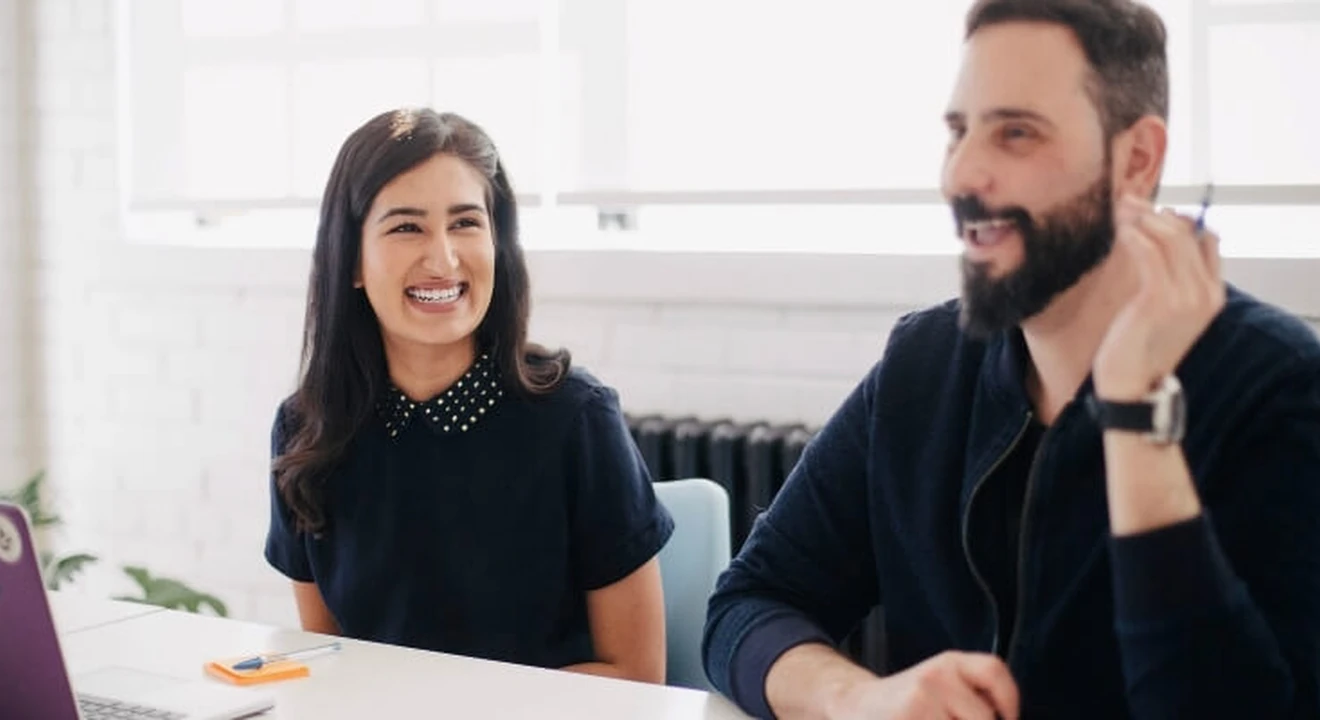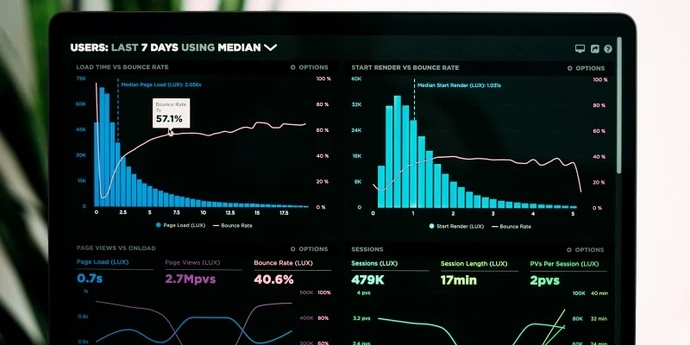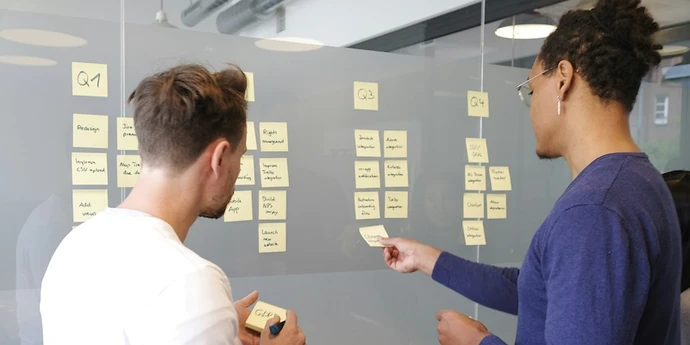Product manager interview questions are tough. They're often complex and ambiguous, and if you're interviewing at a top company, the bar will be high.
Below we'll go through the 11 types of product manager interview questions asked at companies like Google, Meta, and Amazon, and show you how to answer them via 11 high-quality answers.
You'll find over 100 real questions to practice with - all were asked at big tech interviews in recent years.
Plus, we talked to a bunch of FAANG PM ex-interviewers to find out some of the most popular questions and why they ask them.
Here's an overview:
1. Every type of product manager interview question (with answers)
2. Top 17 product manager interview questions (chosen by FAANG PMs)
3. PM interview preparation plan
Let's go!
Click here to practice 1-on-1 with FAANG PM ex-interviewers
1. Every type of product manager interview question (and how to answer)
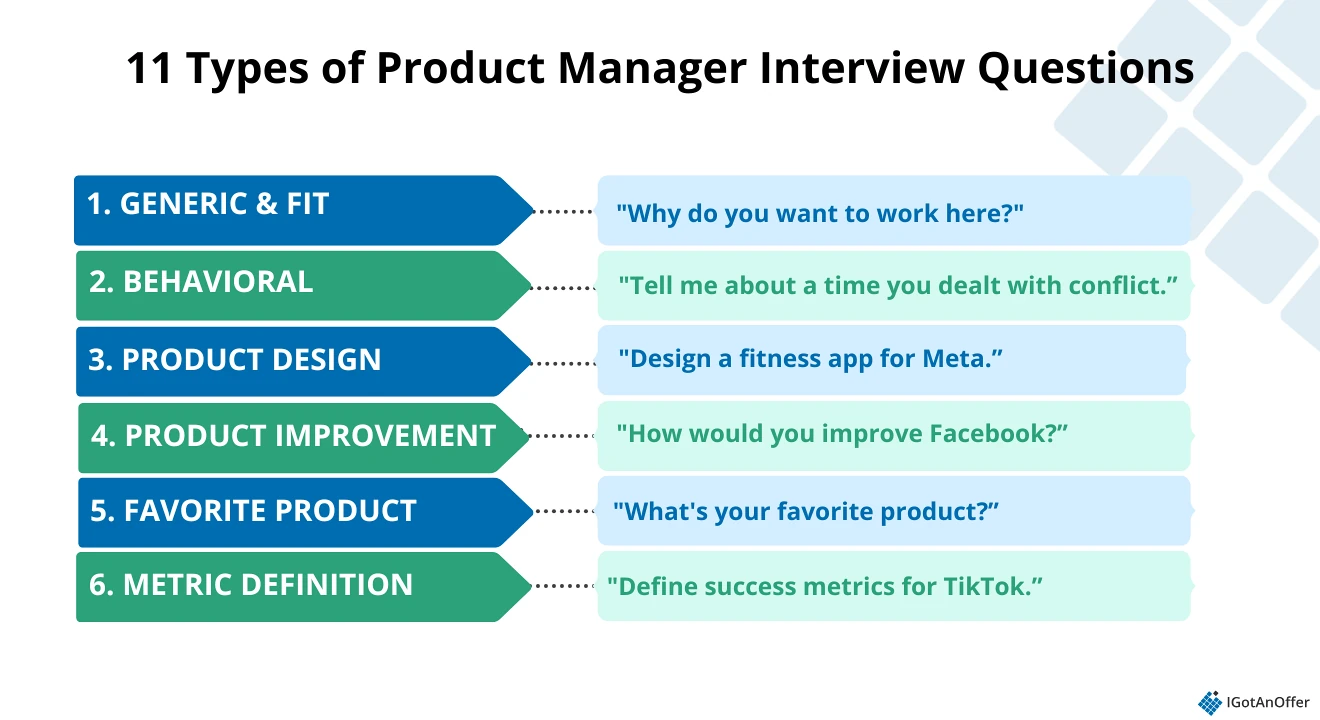
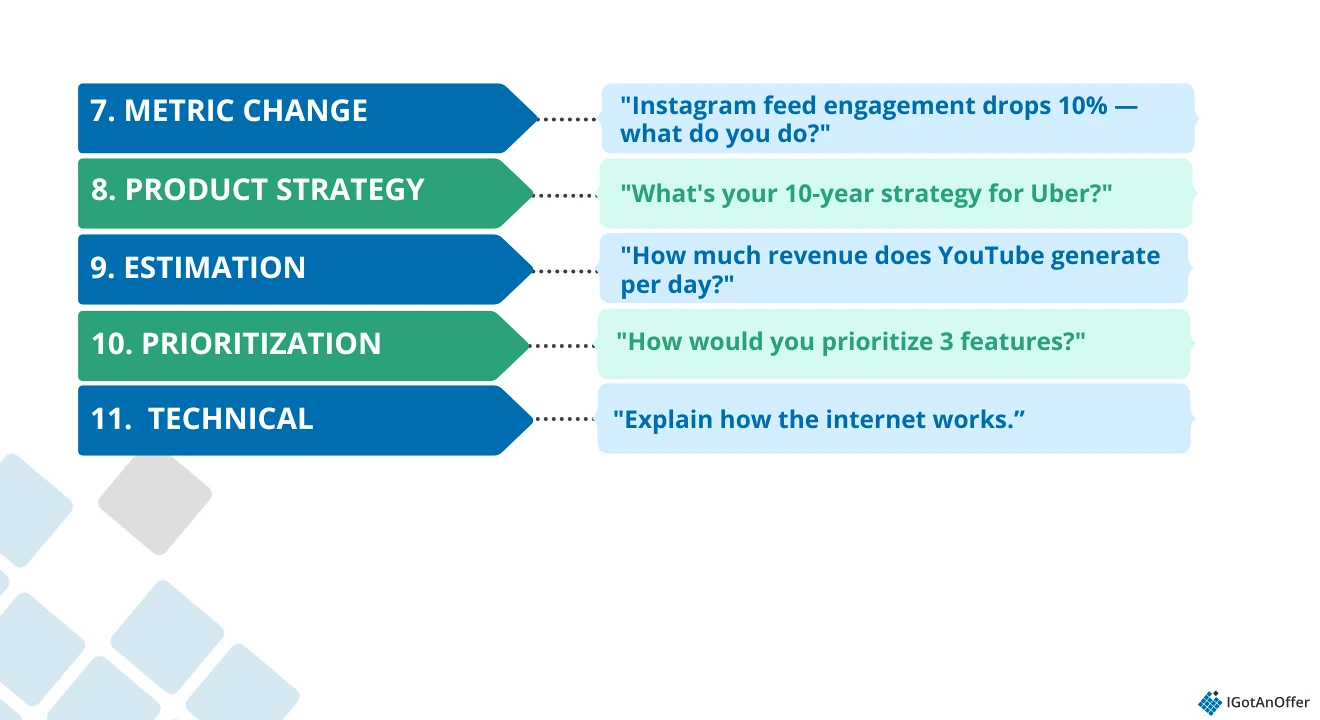
Product manager interview questions can be divided into 11 types:
- Generic and fit: "Why do you want to work here?"
- Behavioral: "Tell me about a time you dealt with conflict"
- Product design: "Design a fitness app for Meta"
- Product improvement: "Improve Facebook"
- Favorite product: "What's your favorite product?
- Metric definition: "Define success metrics for TikTok":
- Metric change (root cause): "Instagram feed engagement drops 10% - what do you do?"
- Product strategy "What's your 10-year strategy for Uber?"
- Estimation: "How much revenue does YouTube generate per day?"
- Prioritization and trade-offs: "How would you prioritize 3 features?"
- Technical: "Explain how the internet works"
Below, we've included examples for each category. These are examples of real questions asked in recent years to product manager candidates at top companies, reported by the candidates on Glassdoor.com.
Let's start with the most basic: generic and fit questions.
1.1 Generic and fit questions↑
Some of the questions you'll be asked, especially at the early stages, will be fairly generic and could be expected in any interview process: standard questions about your experience, suitability for the role, etc.
You can also expect questions that test your motivation for the role and the company - we call these "fit" questions, though they're often referred to as "cultural fit questions".
While this category of questions is probably the most straightforward, don't think you don't need to prepare your answers. Interviewers at top companies will expect structured, compelling answers that demonstrate strong motivation and clear thinking.
Let's take a look at an example.
Why do you want to work at this company?
Example answer:
I want to work at Meta for three reasons.
First, I've worked on messaging products for the past few years, and I’ve been inspired by the Facebook Messenger app in much of my work, particularly with how AR effects have been built into the system. It’s why I applied to join the Messenger team, whose work impacts more than 1 billion people.
Second, I went to school with Marina Bayard, an engineering manager for Messenger, who recommended I apply. I really enjoyed my discussion with her as she seemed to be truly passionate about Meta’s company culture and flat organizational structure. She praised how much it allowed her to be autonomous and get things done.
Finally, I'm attracted to Meta’s culture of moving fast and being bold. These are some of the values I’ve tried to implement myself, removing unnecessary steps from my company’s previous lengthy approval process, so my reports could get things done faster. I'm excited to join a team that thinks along similar lines.
Learn the principles behind the example answer above in our specific guide to answering the "Why this company" question.
More example generic and fit questions
- Tell me about yourself (video answers)
- Why do you want to work at this company? (video answers)
- Why product management?
- Outline your experience as a product manager
- Walk me through your resume (4 sample answers)
1.2 Behavioral interview questions↑
Tech companies use behavioral interviews to assess product managers based on their past experiences.
These questions typically start with “Tell me about a time you…” and focus on soft skills such as leadership, communication, teamwork, and problem-solving.
These questions will appear at every step of the interview process, from the initial recruiter phone screen, the hiring manager screen, and through to the onsite interviews. The frequency and type of behavioral questions will vary, but be prepared for many, especially if you're applying for a leadership role.
You should be ready for some behavioral questions to probe your experience with key parts of the product management process, such as planning roadmaps and launching products.
Tell me about a time you dealt with conflict at work
Example answer:
(Situation)
"Certainly. In my previous role, I found myself amid a conflict regarding resource allocation for two critical projects within our development team.
(Problem)
The conflict arose when both the product development and infrastructure enhancement teams were vying for the same limited resources for their respective projects. I could empathize with both their perspectives but it seemed to me that many of the people involved were basing their arguments on their "gut feeling" around what was "fair".
(Solution)
Recognizing the potential disruption this conflict could cause, I organized a collaborative discussion involving representatives from both teams, project managers, and the leadership. During this discussion, we openly addressed the conflicting priorities and resource needs of each project. I encouraged a transparent sharing of data and information regarding the potential impact of both projects on the company's goals.
This way, we were able to base our discussion around the data, rather than around people's subjective opinions and hunches.
(Impact)
By presenting a data-driven analysis and illustrating how each project aligned with the company's objectives, we were able to justify the resource allocation for both initiatives. The infrastructure team ended up with slightly less than they were hoping for, but presented with the data, they accepted that this was a fair distribution of resources. In the end, both projects progressed effectively.
(Lessons)
Ultimately, this experience taught me how useful data can be in solving or avoiding these types of conflicts. When people use opinions, hunches, and emotions to make decisions, disagreements occur, and they tend to feel more personal. But when the decision-making process is data-driven, there is less room for subjective opinion, and it becomes easier to align different stakeholders."
See Tell me about a time you dealt with conflict: 5 ways to answer for a deep-dive on this question.
You'll notice that the answer above is structured along a simple framework. Learn more about the SPSIL framework and why we think it's better than STAR, in our guide to behavioral interview questions in PM interviews (written for Meta candidates but relevant to all).
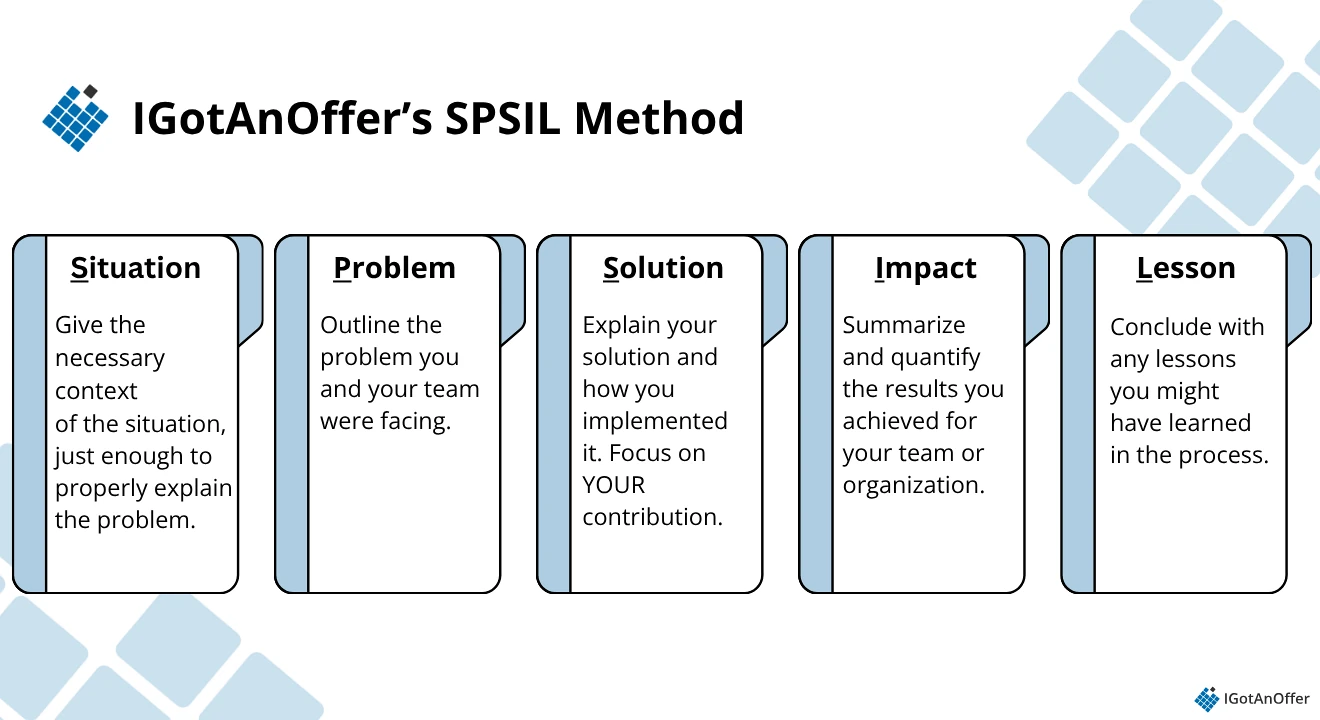
Remember, you'll probably be asked more behavioral questions than any other type, so it's worth preparing your "stories" thoroughly. Make sure you have 3-4 minute answers prepared for the questions below.
More example behavioral questions:
- Tell me about a time you demonstrated leadership (5 ways to answer)
- Tell me about a time you failed (5 ways to answer)
- Tell me about a time you had an innovative idea that had a positive impact
- Tell me about your most significant accomplishment. Why was it significant?
- Tell me about a time you worked backwards from a customer problem — how did you solve it?
- Describe a project that you wish you had done better and how you would do it differently today
- Tell me about a time you applied judgment to a decision when data was not available
- Tell me about a product you led from idea to launch
- Describe the last time you had to make a challenging decision when prioritizing
- How do you handle situations where there is resistance to change within your team or organization?
Check out our guide on PM behavioral interview questions for a list of common questions asked at top companies, along with sample answers.
1.3 Product design questions↑
Product design questions are one of the most common and important types of questions asked in product manager interviews. You’ll be given 45–60 minutes to design a completely new product, such as “a fitness app for Meta” or “an umbrella for kids.”.
Product design questions are often part of a “product sense” interview round, as it is known at companies such as Meta, Lyft, Stripe, and others (Google has a “product insight” round).
Design a fitness app for Meta
Example answer outline from Mark (Senior PM, ex Meta and Google):
1. Business goals
Start by identifying Meta's business objectives. Are they focused on user engagement, data collection, or expanding their product offerings?
2. Segmentation
Think about the different segments of users Meta is targeting. You might break them into:
- Casual users who want to track basic fitness activities like steps or calories
- Fitness enthusiasts looking for more detailed tracking, challenges, or social features
- Health-conscious individuals interested in mental wellness, sleep tracking, and holistic health
Consider Meta's existing user base and how you could leverage social connections within the app, like fitness groups or challenges.
3. User problems
What challenges are these segments facing? For example:
- Casual users may struggle with keeping a consistent workout routine.
- Enthusiasts may feel overwhelmed by too many data points or features.
- Health-conscious individuals might not find a seamless way to track both physical and mental health in one place.
4. Solutions
Offer solutions that solve these problems:
- For casual users, suggest a personalized fitness tracker that’s easy to use and doesn’t overwhelm them.
- For fitness enthusiasts, introduce detailed analytics and integration with wearables to track performance and set challenges.
- For health-conscious individuals, propose a wellness dashboard that integrates physical fitness, sleep, and mindfulness activities.
- Think about leveraging Meta's social features, like sharing achievements or competing with friends.
5. Prioritize
Recognize that not all features can be built right away. Focus on the most impactful ones that align with Meta's business goals and will attract the largest user base:
- For casual users, prioritize ease of use and basic fitness tracking features.
- For enthusiasts, prioritize advanced tracking and social engagement features.
- Consider Meta's existing infrastructure to determine which features can be built most efficiently.
Use a framework like RICE (Reach, Impact, Confidence, Effort) or Moscow (Must-have, Should-have, Could-have, Won't-have) to assess and prioritize features.
6. Technical and ethical constraints
As this app will likely integrate with Meta’s other platforms, keep in mind privacy and data security issues.
- How can Meta ensure users' data is safe while still offering valuable insights?
- Think about whether this app should support integration with third-party fitness trackers (e.g., Apple Watch, Fitbit) and how to handle that data.
7. Metrics
Identify key performance indicators (KPIs) to measure success, like daily active users (DAU), user retention rates, and engagement with features (e.g., social sharing, challenges, etc.).
Watch a full video version of Mark giving this answer:
Read our guide on How to answer product design questions to learn in more detail what's expected of you and which frameworks you could use. Then practice answering a few from the list below.
Example product design questions
- Design an app for a theme park (video answer)
- Design an antiques marketplace (video answer)
- Design a fitness app for Meta (video answer)
- Design a computer keyboard (written answer)
- Design an alarm clock for the blind
- Design a pen for an astronaut
- Design an umbrella for kids
- Design a phone for deaf people
- Design a washer and dryer
- Design Google radio
- Design a dictionary lookup for Scrabble
- Design an app for a community of Celiac patients
- Design a grocery app
- Design an app for the Department of Motor Vehicles (DMV)
- Design a bike-based delivery service
- Design an elevator
1.4 Product improvement questions↑
Product improvement questions are extremely common in big tech product manager interviews. Interviewers often ask candidates to improve one of the company's products, though they could ask you to improve any well-known product.
How would you improve Facebook?
Example answer:
1. Business objective
- You need to reduce the scope of the question. Facebook has many products: Feed, Messenger, Marketplace, Ads Manager, etc. Is there a specific one we should focus on?
- Do we already have a target user in mind for that product, or is that something we should explore/discuss?
Let's assume the focus is on improving Facebook's Ads Manager to increase conversion rates for small businesses (DIY advertisers).
2. User problems
After confirming the business goal, it’s time to dive into user problems. For DIY advertisers using Ads Manager, the challenges could include:
- Overwhelmed with customization options: New users may find the abundance of settings and features confusing (e.g., different ad formats, placements, targeting options).
- Difficulty installing the Facebook Pixel: Many small businesses don’t have the technical resources to install the Pixel and track conversions effectively.
- Uncertainty about using Facebook Ads: Some users might not be sure if Facebook Ads is the best fit for their needs compared to other marketing options.
Prioritizing problems: As small business owners are likely wearing multiple hats, they need solutions that help them get up and running quickly. Therefore, prioritize problems like the overwhelming options in Ads Manager and technical barriers to Pixel installation, as solving these can help users start running ads faster and gain immediate results.
3. Solutions
Now that we know the problems, let’s brainstorm potential solutions for each one.
For Problem 1 (customization overload):
- Onboarding experience: Guide new users through their first ad creation with a simple, step-by-step walkthrough.
- Ad campaign templates: Offer pre-built templates tailored to different small business goals, making it easy for users to launch their ads quickly.
- Simplified version of Ads Manager: Consider creating a “light” version of the tool with only the most essential features for DIY advertisers, so they don’t feel overwhelmed by complexity.
For Problem 2 (Pixel installation):
- Integrations with website builders: Partner with platforms like Shopify, WordPress, and Wix to allow easy integration of Facebook Pixel without any technical knowledge.
- Developer list: Provide a directory of trusted developers who can help with Pixel installation, potentially for a fee.
- Self-installation tutorial: Offer a detailed guide for DIY users who want to take a more hands-on approach, walking them through the installation process in simple terms.
4. Prioritize solutions
For Problem 1 (customization):
- The simplified Ads Manager would likely have the biggest immediate impact, even though it may take time to develop. However, this would provide long-term benefits by making it easier for small businesses to get started with Facebook Ads.
- Onboarding experience and ad templates are quicker fixes that would immediately make Ads Manager more approachable for new users.
For Problem 2 (Pixel installation):
- The integration with website builders should be a high priority since it reduces the technical barrier to entry for users.
- The tutorial could be an additional quick-win solution for those who are comfortable doing things on their own, while the developer list would be a more optional service for users needing extra support.
5. Final recommendation
To effectively increase the activation rate of small businesses using Ads Manager, you could recommend the following steps:
- Develop a simplified version of Ads Manager for DIY advertisers to reduce overwhelm.
- Integrate with website builders like Shopify and WordPress to allow easy Facebook Pixel installation.
- Provide a tutorial for users who prefer to set up the Pixel themselves, ensuring there are self-service options for both technical and non-technical users.
See the full version of the answer above, plus learn more about using frameworks for these questions in our guide to answering product improvement questions.
You can practice further with the questions below.
Example product improvement questions:
- How would you improve Google Chrome? (video answer)
- How would you improve Facebook Groups? (video answer)
- How would you improve Google Maps (written answer)
- How would you improve Google Pay?
- How would you improve throughput at an airport?
- How would you improve Airbnb?
- How would you improve Dropbox?
- How would you improve Netflix?
- How would you improve Reddit?
- How would you improve LinkedIn's user profile page?
- How would you improve engagement in Trello?
- How would you improve Google Home?
- How would you improve Google Image search?
- How would you improve the NYC transit system?
1.5 Favorite product question↑
This is just one question, but it gets asked at the top companies that we've included it as its own category. It is often framed as a product improvement question because after describing what you like about your favorite product, you're asked how you'd improve it.
Interviewers ask the favorite product question to assess your understanding of product design, your ability to deliver constructive criticism, and your knowledge of a specific product.
Let's take a look at how you could construct a strong answer.
What is your favorite product, and how would you improve it?
Example answer:
1. Business objective
My favorite product is ChatGPT, the large language model developed by OpenAI. It helps users by providing conversational responses, completing tasks, and assisting with information.
A possible business objective for ChatGPT is: to become the leading AI assistant platform, generating revenue through subscriptions and API access, while continuously improving its capabilities for diverse user needs across industries.
2. User problems
ChatGPT serves various users, including professionals, businesses, educators, and students. Let’s focus on professionals who often face these challenges:
- Research and data analysis: professionals need to process large amounts of information and identify trends.
- Creative inspiration: professionals face creative blocks when developing new ideas or strategies.
- Professional communication: drafting proposals, emails, and presentations requires assistance, especially in adapting to different audiences.
3. Solutions
- Research and data analysis: ChatGPT helps by providing detailed responses to questions, making it easier to gather insights quickly.
- Creative inspiration: it helps overcome creative blocks and offers fresh perspectives for brainstorming new ideas.
- Professional communication: it assists in drafting professional content like emails, reports, or presentations and even helps with language translation.
4. Address limitations and suggest improvements
While ChatGPT is powerful, it has limitations:
- It can generate inaccurate or biased information.
- It lacks real-world understanding and may misinterpret complex concepts.
Improvements:
- Refine the training data to reduce bias and improve accuracy, perhaps by adding a fact-checking system.
- Enhance the model to understand more context and nuances, leading to more accurate, original content.
- Implement safety measures to prevent misuse and ensure responsible AI use, such as transparency in decision-making and content generation.
5. Summary
ChatGPT is my favorite product due to its broad capabilities, despite its current limitations. With improvements, it can become an even more powerful tool for professionals and users in various industries.
Learn more about the favorite product question with this guide.
1.6 Metric definition questions↑
There are two types of analytical thinking questions, both based on metrics. The first is metric definition questions.
Metric definition questions focus on your ability to define metrics that provide clarity on the health of a product or feature. There are many different metrics you could be tracking (e.g. impressions, clicks, return on ad spend, etc.) and your interviewer will want to hear you select the most important ones using a rigorous process.
Let's see an example answer.
How would you set success metrics for TikTok's For You feed?
Example answer (using GAME framework):
1. Goals
To determine the right metrics, we first need to define TikTok's primary business and user objectives for the For You feed. The For You feed is TikTok’s main feature, designed to:
- Maximize user engagement by keeping users watching and interacting with content
- Optimize content discovery by serving highly personalized recommendations
- Drive ad revenue by increasing watch time and ad impressions
Since engagement is critical to TikTok’s success, I’d assume the main goal is keeping users watching and interacting with content for as long as possible. Does that sound right to you?
2. Actions
Next, we identify key actions that indicate engagement within the For You feed. These include:
- Passive engagement: watching a video, watching it to completion, rewatching
- Active engagement: liking, commenting, sharing, following the creator, saving the video
- Content exploration: clicking on hashtags, searching for similar videos, clicking on profiles
Since our goal is engagement, the most critical actions would likely be watch time, completion rate, and interactions (likes, shares, comments). Would you agree?
3. Metrics
Now, let’s define specific metrics for our prioritized actions:
- Watch-based metrics (passive engagement)
-
Average watch time per session: tracks how long users spend in the For You feed per session
-
Video completion rate: measures the percentage of videos watched to completion
-
Rewatch rate: shows how often users replay a video, indicating strong engagement
- Interaction-based metrics (active engagement)
- Likes per thousand video views: measures how often users like content relative to views
- Shares per thousand video views: indicates how often content is engaging enough to be shared
- Comments per thousand video views: reflects deeper engagement and conversation
- Content discovery metrics
- Follow-through rate: percentage of users who follow a creator after watching their video
- Hashtag & profile clicks per view: measures how often users explore beyond a single video
4. Evaluation & trade-offs
To summarize, I’d focus on watch time, completion rate, and shares per view as core engagement metrics. These provide a clear signal of whether users are finding the For You feed engaging.
However, there are trade-offs:
- Watch time alone doesn’t indicate if content is enjoyable—it could be passive scrolling
- Likes and comments may not capture all engagement since some users prefer to consume content without interacting
- Virality (shares) is important, but not all widely shared videos contribute to long-term engagement
To mitigate these trade-offs, we could incorporate sentiment analysis on comments and monitor user retention (e.g., daily returning users).
Read more on metric definition questions and how to use the GAME framework in our guide on how to crack metric questions in product manager interviews.
Example metric definition questions:
- Define YouTube success metrics
- What metrics did you use to measure the successful launch of your product?
- What metrics would you use to measure the success of Facebook’s “Save Item” feature?
- How would you measure the success of the new YouTube Player UI?
- What analysis would you use to understand if we should increase the price of an Amazon Prime Membership?
- How would you determine the negative value of an abusive posting?
- Imagine you are the PM of the Facebook Feed — how would you measure retention?
- How would you set goals for Instagram Reels?
- Tell me what metrics you would look at as a product manager for Instagram ads
- What are the things that Netflix should measure and analyze on a daily basis?
- How would you measure the success of Apple's WWDC event?
1.7 Metric change (root cause) questions↑
Metric change questions test whether you know what to do when a key product metric (e.g. traffic, revenue, engagement, etc.) is going up or down without a clear cause. How would you get to the root cause of the problem?
There are many different reasons why the metric change could be happening, and your interviewer will want to see you take a structured and exhaustive approach to find the root cause of the issue.
Let's see how an expert PM would answer a root cause question.
Engagement on Instagram feed drops 10%. What do you do?
Example answer from Damien (ex-Meta product manager):
When tackling an analytical thinking question like this, it's important to have a structured approach. Here’s how I would go about answering it effectively.
Bear in mind that for "root cause" questions like this, you're mainly asking questions of the interviewer. The trick is to make sure you're asking the right ones, and in a logical and structured manner that gets you to the cause of the change in metrics.
1. Understand the problem
- Before diving in, clarify the key metric drop: what exactly does "engagement" mean in this case? Is it time spent, likes, shares, or something else?
- In this scenario, engagement means a drop in time spent on the Instagram feed, along with related actions like likes and comments.
- Confirm whether the issue is isolated or broader—does it affect only Instagram, or do we see similar drops across other meta products like Facebook or WhatsApp? Here, it's limited to Instagram.
2. Investigate internal changes
- Check for internal updates: did we roll out a new version of Instagram? Make UI changes? Modify the algorithm? In this case, no major changes were made.
- Look at system errors: any bugs, backend failures, or analytics issues? Here, no internal reports indicate a problem.
- Validate with internal teams: are there any reports from engineering, data, or security teams that could explain the drop? Again, nothing significant was found.
3. Analyze external factors
- Assess competitor activity: did another platform launch a major feature or campaign that could have pulled users away? In this case, no major shifts were detected.
- Examine broader industry trends: is there a general decline in feed-based engagement across social media? Our analysis showed no such trend.
- Identify regional patterns: is the drop specific to one country or global? Here, the most significant decline was in the US, but there were also smaller declines worldwide.
4. Explore user behavior changes
- Analyze content consumption: did the drop affect all types of feed content equally? In this case, stories experienced the biggest decline in engagement.
- Investigate content production: did creators post less content? Overall production was stable, but large accounts saw a noticeable drop.
- Assess feed quality: did users have fewer posts to engage with? Yes, there was a reduction in available content.
5. Identify the root cause
- Since major influencers reduced their content production, it impacted the overall quality of users' feeds.
- Further investigation revealed a targeted hacking attack on high-profile accounts, preventing them from posting.
6. Conclusion & next steps
- Summarize findings clearly: the drop in engagement was driven by a decline in content from major influencers, caused by a targeted hacking incident.
- Propose action items: address security vulnerabilities, restore affected accounts, and communicate with impacted creators to encourage content production.
- Always tie back to business impact: engagement dropped because users saw lower-quality feeds, leading to less time spent on the platform.
Watch Damien answer this question in full in this product manager metrics mock interview.
Consult our guide to answering product metric interview questions to best prepare yourself for this category.
More example metric change (root cause) questions:
- There's been a 15% drop in usage of Facebook Groups — how do you fix it?
- You have just localized an e-commerce site in Spain and now see that traffic has reduced — what could be the reasons?
- You are looking at YouTube’s Daily Active User data worldwide and notice a 10% jump compared to yesterday in Indonesia — what happened?
- Users are no longer signing up for our email list — what would you do?
- Reddit traffic went down 5%. How would you report this issue to the executive team?
- The usage of Facebook Event’s “Yes I’m going” dropped 30% overnight — what data would you look at to try to isolate the issue?
- You are the PM of Facebook 3rd Party Login, and you see your numbers are declining 2% week-on-week — what do you do?
1.8 Product strategy interview questions↑
Product strategy questions assess how well you think about a wide range of aspects that good PMs need to take into account when making product decisions, such as competition, pricing, marketing, time to market, etc.
Strategy questions also test your ability to set the product vision and articulate a roadmap to deliver it.
Most FAANG companies ask product strategy questions at the onsite interview stage. Google, for example, has a round called “strategic insights,” whereas Amazon will ask you strategy questions related to its leadership principles.
Let's see how an expert PM might answer a strategy question.
Example answer from Mark (Senior PM, ex Meta and Google):
Below, I've applied Porter’s Five Forces framework to this question, but there are other ways to approach it. The key is to stay clear, logical, and structured.
1. Competition
Competition is fierce in this space. Uber’s main competitors aren’t just other rideshare companies but also logistics providers and delivery services. Companies like Lyft, DoorDash, Amazon, and even local mobility startups are all potential threats.
Key takeaway: The real competitive advantage comes from network effects. The more people use Uber, the more valuable it becomes for drivers and riders alike. That means Uber has to keep scaling, improving efficiency, and ensuring a top-tier user experience.
2. Customers
Customer loyalty isn’t a given—people use Uber because it’s convenient, fast, and reliable. If it’s not those things, they’ll switch. Price matters, but speed and reliability matter more.
Key takeaway: To stay ahead, Uber needs to double down on AI to optimize routing, predict demand, and personalize the experience. The best AI doesn’t just respond; it anticipates. Imagine an Uber that knows you need a bigger car because you’re traveling with friends, or that a truck would be better for your trip to Home Depot. That’s the future.
3. Suppliers
Drivers are suppliers, and Uber doesn’t own the supply, so keeping them engaged is critical. Uber’s margins are tied to keeping drivers happy while making the platform attractive to riders.
Key takeaway: Uber needs to balance pricing and incentives carefully. The long-term bet is on autonomous vehicles, but until then, driver experience matters.
4. Substitutes
This is an interesting one. In personal transport, taxis used to be the main substitute, but that’s no longer a serious threat unless taxis become drastically cheaper or significantly better. Other substitutes like biking, public transit, or walking haven’t evolved much in decades and likely won’t change dramatically in the near future.
However, when it comes to moving goods, not just people, substitution is a much bigger threat. UPS, FedEx, Amazon, and local delivery startups all compete here. This means Uber’s logistics business must be extremely competitive on price and reliability to win.
Key takeaway: The best way to defend against substitution is to be the most convenient and cost-effective option. Margins might be thinner in logistics, but scale can make up for it.
5. Threat of new entrants
New entrants could come from unexpected places. There are two in particular worth discussing:
-
Decentralized Transportation (DT): Just like DeFi (Decentralized Finance) is disrupting banking, a decentralized rideshare or delivery network could disrupt Uber. The best defense? Build a world-class product that’s so good that users prefer it over decentralized alternatives.
-
Hyperloop and Other Innovations: Elon Musk’s Hyperloop and similar projects could be disruptive in the long run, but in the next 10 years, it’s unlikely to be a major factor. That said, Uber should keep an eye on emerging technologies that could reshape the industry.
Key takeaway: Uber’s biggest advantage is execution. The best way to stay ahead is to invest in AI, user experience, and operational efficiency to make Uber’s centralized model better than any alternative.
6. Bring it all together
From this analysis, we can define Uber’s key pillars for the next decade:
-
AI-first approach: AI must power everything, from routing to pricing to user experience.
-
Autonomous vehicles: long-term profitability depends on removing driver costs.
-
Extreme network effects: more users = more value = more dominance.
-
High-quality product: the best user experience wins.
7. What we didn't cover
No strategy is perfect, and it’s just as important to call out what wasn’t covered in-depth:
-
Brand perception: how customers feel about Uber matters, but it wasn’t a focus here.
-
M&A strategy: Uber might need to acquire companies to accelerate growth, particularly in AI and autonomous tech.
-
Profitability & margins: right now, Uber isn’t super profitable, but long-term, great products should command pricing power.
8. Prioritization
If Uber wants to dominate mobility, which of these four bets is the most critical? For me, it’s AI. Uber’s success depends on being fast and efficient—AI is the backbone of that. The best AI will make Uber more seamless, predictive, and effortless for users.
9. North Star metric
To measure success, we need one key metric. For Uber, it’s not just about rides, it’s about moving things. So the best metric is Monthly Move Units (MMU)—how many people, packages, and goods Uber moves each month. If MMU is growing, Uber is winning.
Read our guide to answering product strategy interview questions to deep-dive on these questions. Remember, when answering a strategy question, always:
-
Use a structured framework (like Mark did above).
-
Derive clear, actionable insights.
-
Prioritize based on what drives the business.
-
Define a North Star metric to measure progress.
You can practice with the questions below.
More example product strategy questions:
- How would you turn Facebook Events around? (written answer)
- How would you bootstrap a product that helps people find apartments?
- If you were a VC, would you be more bullish on AR or VR?
- If you were the CEO of LEGO, what new product line would you come up with to increase revenue?
- Imagine you’re a PM at a startup that works with big data from the NHL — what’s the first product you would ship?
- How would you sell live plants at Amazon?
- How would you monetize Facebook Messenger?
- If you were the CEO of Meta, what are the top three things you would do?
- Imagine you’re the CEO of Apple — which product would you eliminate from the lineup?
1.9 Estimation questions↑
Estimation questions require you to assess market sizes, revenue potential, the number of customers, etc.
We recommend using a four-step approach to answer estimation (otherwise known as "guesstimate") questions:
- Ask clarification questions.
- Map out your calculations.
- Round numbers and calculate.
- Sense-check your results.
You can see how this might look in the example answer below.
How much revenue does YouTube make in a day?
Example answer:
1. Ask clarification questions
- Do we want to calculate all of YouTube's revenues? Or just from advertising, which is likely to be the main source?
- Does YouTube charge advertisers per 1,000 views or per click? Are we interested in YouTube's revenues globally or just in the US?
-
Do we include YouTube Music?
Let's assume here that we want to calculate the advertising revenues ($) made by YouTube videos (i.e., not music) in the US only. Let's also assume that YouTube mainly charges advertisers per 1,000 views for simplicity.
2. Map out your calculations
We could estimate YouTube's daily revenues in the US by taking a three-step approach:
- Calculate the number of daily US YouTube users
- Calculate the number of advertising videos they view
- Calculate the corresponding revenue
Lay out that approach to your interviewer and check that it works for them before starting your calculations.
3. Round numbers and calculate
Let's step through our approach:
a. Calculate the number of daily US YouTube users
- There are ~300m people in the US. Let's assume that the average life expectancy is 80 years old and that the population is equally distributed across each age.
- We now need to guesstimate how frequently each age group watches YouTube:
- 0 to 9 y.o.: does not watch
- 10 to 20 y.o.: 75% of days
- 21 to 40 y.o.: 75% of days
- 41 to 60 y.o.: 50% of days
- 61 to 80 y.o.: 10% of days
It's a great idea to justify the assumptions you make by relating them to your personal experience. For instance, here you could say, "I'm going to assume that the 10 to 20 y.o. group watches YouTube 75% of days as my niece watches YouTube Shorts with about that regularity." And I'll assume 10% for the 60 to 80 y.o. group, as some older people do watch, but my grandparents aren't even sure what YouTube is."
- We then need to calculate the number of users for each age group. We can divide the population into bands of 10 years by dividing 300m by 8: 40m. (or close enough). So we can say that our age groups spanning 10 years have 40m people, and the ones spanning 20 have 80m.
- We can then calculate the daily users in each age group (rounding up where necessary).
- 0 to 9 y.o.: 0
- 10 to 20 y.o.: 75% of days x ~40m = ~30m
- 21 to 40 y.o.: 75% x ~80m = ~60m
- 41 to 60 y.o.: 50% x ~80m = ~40m
- 61 to 80 y.o.: 10% x ~80m = ~10m
- Total = 30 + 60 + 40 + 8 = ~140m
- The number of daily YouTube users is therefore approximately 150m in the US (round it to an easy number to help with the next stage of calculations).
b. Calculate the total number of advertising videos viewed
Let's now estimate the total number of ad views per day on YouTube.
- The number of videos viewed by users probably varies quite dramatically. Viewers who watch Shorts on their phones may easily view 20+ short videos per day, though most of these won't have ads. Other users might just watch a single, long-form video. So, let's assume the average is ten videos per day. We've got 150m users, so that's 1.5bn views per day.
- YouTube does not systematically play an ad at the beginning of a video. Based on our experience, let's assume only 50% of videos viewed start with an ad. So, that's 0.75bn advertising video views per day.
c. Calculate the corresponding revenue
- Assuming YouTube charges advertisers $10 per 1,000 views, the total revenues it generates in a day is: 0.75bn x $10 / = $7.5bn, then divided by 1,000 = 7.5m
We therefore estimate that YouTube generates about $7.5m per day in ad revenues in the US only.
4. Sense-check your results
As mentioned above, it is crucial that you spend some time sense-checking your results. In practice, you should check your intermediate results as you progress through the estimation and your final result at the end. But here we are checking all the numbers in one place, so it's easier for you to keep track of what we are doing.
- Intermediate result: If ~150m people watch YouTube every day, this means about half the country watches at least one video on any given day. That sounds reasonable.
- Final result: Similarly, if YouTube generates $7.5m per day, that means it generates ~$350bn per year. Does that sound possible? Here, some familiarity with the tech industry and its revenues is needed. This is indeed a realistic sum, given that Google said YouTube made about $80bn in ad revenue across all geographies in Q1 of 2024.
- Remember that the interviewer is less interested in you getting the "right" answer, and more focused on how you structure your thinking and calculations. But if you end up with a number that seems way off, say so.
Consult our guide to answering estimation interview questions to best prepare yourself for this category. Practice with the questions below.
More example estimation questions:
- How much time do people spend at stoplights each year? (video answer)
- What is the market size for driverless cars in 2026?
- What is the market size for toilet paper in the US?
- What is the storage space required to host all images on Google Street View?
- What is the required internet bandwidth for an average college campus?
1.10 Prioritization and trade-off questions↑
Employers use prioritization/trade-off questions to evaluate candidates’ critical thinking and communication skills.
There are many different features a PM could prioritize on a given product, as well as different conclusions as to which projects are the most impactful. So your interviewers will want you to single out your highest priorities using a process that includes a thorough investigation of the factors and trade-offs involved.
You’re the PM for a brand new photo-editing mobile app - explain how you'd prioritize projects A, B, and C
- Project A: update the in-app messaging system
- Project B: develop a corresponding desktop app
- Project C: add a crop tool to the editing suite
Example answer:
Step one: Define the business objective
First, you should start by making sure you understand the product properly and agree with your interviewer on specific user and business objectives. Agreeing on the goals upfront is extremely important because your priorities will change depending on what you’re trying to achieve with the product.
In this instance, given that we’ve been informed we’re the PM for a brand new mobile app, the current business objective could be to drive new user acquisition and engagement. Let’s assume that we’ve run this by the interviewer, and they’ve encouraged you to focus on user engagement.
Now that we know what we’re working toward, let’s apply a prioritization framework to our three options.
Step two: RICE Framework - Reach
First, we’ll determine the Reach for these three projects. For project A, the in-app messaging update, we know that every user who sent messages will be impacted by this change. Let’s say that the interviewer has given us some general numbers to work with, so we know that an average of 250 users have sent messages each month over the last quarter.
Project B (desktop app) will be more difficult to estimate, as we do not have any concrete numbers to back up how many users will take advantage of the desktop version. Let’s say that we’ve checked with our interviewer and have been informed that our early user base is around 700. Using a more conservative estimate, we guess that 50% of them will use the desktop app. That brings us to 350.
Finally, as project C is adding a cropping tool to the free category of our full editing suite, we can count the number of users who may implement it. It's a simple, commonly used tool, so we can assume the majority of users will use it, so we’ll round the Reach number to 600.
So here is our breakdown for Reach:
Project A: 250
Project B: 350
Project C: 600
Step three: RICE framework - Impact
For project A (messaging update), let’s say that the interviewer has informed us that users who send messages appear to do so sporadically. They use it to share edited photos with friends who also use the app, something that users are already able to do through the share feature. So, as users who do make use of the messaging system don’t engage with it heavily, let’s say the impact is low, giving us an Impact score of 0.5.
For project B (desktop app), this feature will have a huge impact on users who adopt the desktop version. Thus the Impact score is 3.
Finally, project C involves adding a simple cropping tool to the editing features that are available to all users. However, as it is a relatively small addition to the toolset, rather than a complete overhaul, we can assume the impact wouldn’t be “huge.” Let’s choose the “high” Impact score of 2.
So here is our breakdown for Impact:
Project A: 0.5
Project B: 3
Project C: 2
Step four: RICE framework - Confidence
Our Reach value for Project A (messaging update) is concrete and data-based, using the given number of users who send messages on the app. However, we are largely estimating Impact, as we do not yet have the data in the interview setting to back up those scores. We’ll give project A an 80% Confidence score.
We’ve been given less data on Project B (desktop app) versus project A, meaning we had to make estimations for Reach and Impact. So project B has a low 50% Confidence score.
We do have a data-based value for Reach in Project C (cropping tool) but not for Impact. So project C will also have a Confidence score of 80%.
Here is our breakdown for Confidence:
Project A: 80%
Project B: 50%
Project C: 80%
Step five: RICE framework - Effort
Let’s say that there’s already a framework in place for the messaging update, so the timeline of Project A won’t take longer than one person-month. This will bring us to an Effort score of 1.
Project B, designing an entire desktop app, will require a much larger time investment from the whole team. Let’s imagine that you’ve worked on a similar project in your past experience, and that it took six person-months to complete. You should acknowledge to your interviewer that, of course, this is an imperfect comparison. But given the limited information you have in an interview setting, we’ll take this as an Effort score of 6.
For Project C (cropping tool), let’s say that the interviewer has told us that the team’s previous time investment for adding new editing features was three person-months. So we’ll give project C an Effort score of 3.
Here is our breakdown for Effort:
Project A: 1
Project B: 6
Project C: 3
Step six: Re-evaluate and consider trade-offs
When we take the four previous values and run them through the RICE formula for each project, here is what we find:
Project A: (250 x 0.5 x .80) / 1 = 100
Project B: (350 x 3 x .50) / 6 = 88
Project C: (600 x 2 x .80) / 3 = 320
So, if we only take the RICE score into account, we should prioritize Project C (cropping tool), then Project A (messaging update), and put Project B (desktop app) at the lowest priority. However, we know that estimations won’t be 100% accurate, especially given the limited information in an interview setting. Consider any other factors that should be taken into account, such as time-sensitive dependencies for other projects.
In this case, prioritizing the cropping tool makes sense, as the ability to crop photos in an editing app is a basic attribute that many users would expect to be able to access. The trade-offs to consider when prioritizing project C would be that offering a crop tool as a free feature may lead fewer users to upgrade to a paid account; however, it would be riskier to withhold the feature, for fear that users migrate to different apps.
As Project A (messaging update) and project B (desktop app) have similar RICE scores, this would be a good time to investigate whether there are any other reasons to prioritize one over the other. Let’s imagine that the interviewer mentioned that a desktop application was an early promise they made to stakeholders when initially launching the product. In this case, it would make more sense to prioritize Project B over Project A, despite the order of their RICE scores.
So, in this context, we should prioritize the projects in this order: C, then B, then A. However, there is no single correct answer for prioritization questions. You may come to a different conclusion than we did, or use a different framework such as the Kano model. The interviewer wants to see that you have a method for making choices and trade-offs, and that you’re considering the most relevant factors.
To learn more, see our guide to answering product prioritization questions
More example prioritization and trade-off questions:
- How do you prioritize features?
- How would you prioritize WhatsApp chat features?
- How do you deal with trade-offs between opposing metrics, such as higher AoV but lower conversion rate?
- Evaluate the trade-offs between enlarging posts on the Newsfeed versus showing more ads.
- As the PM of Facebook Pages, what features would you prioritize?
- How would you evaluate the trade-offs between boosting ad revenue and decreasing retention?
1.11 Technical questions↑
Most technical questions in PM interviews take the form of technical explanation questions. They assess how well you understand relevant technical concepts for the position you’re applying to.
They also test your ability to communicate clearly when dealing with complex topics, as you’ll often need to explain technical needs or problems to non-technical stakeholders. Are you able to adjust your vocabulary and metaphors so that they can better understand the concept at hand?
Explain to my grandfather how the internet works
Example answer:
1. Clarify
To reduce the scope of the explanation, you can start with, “The internet is composed of many complex elements. I could talk about network connections, blockchain technology, specific web services, etc. But the most fundamental feature of the internet is probably that websites can be accessed by typing a URL in a browser, so this is what I suggest we focus on.”
2. Explain step by step
Take some time to write out your thoughts, then walk the interviewer through the steps:
- The Client browser uses the URL (e.g. example.com) to find the website’s IP address, which is either stored in local memory or found with a DNS lookup. Here’s a metaphor to help explain: a DNS resolver is like a big phone book matching URLs and IP addresses. If you wanted to call “John Smith” on the phone, first you would need to find his number in the phone book.
- Next, the browser uses the IP address and queries the internet for the website’s data. This is like if you dialed John Smith’s number, then the phone company would make a connection between your phone lines.
- Then the website’s Server sends appropriate data (e.g. an index.html file) back across the internet. To continue the metaphor, when John Smith answers and says hello, his voice is translated into an electronic signal that’s passed through the phone lines.
- Finally, the website’s data reaches the browser, which then displays a visual interpretation of that data. This is like your phone’s speaker turning the electronic signal into John Smith’s voice again.
3. Conclude and discuss
After going over the above, you could conclude by saying, “So, typing a URL into the address bar of a browser works a lot like making a phone call. Information is transferred back and forth between two connection points, and the transferred information needs to be interpreted by the receiver.”
Consult our guide to answering technical interview questions to best prepare yourself for this category.
More example technical questions:
- How does Google Calendar work?
- Explain recursion to your grandmother
- What technologies would you use to build a live stream video service?
- Explain the concept of "protocol" to a 4-year-old child
- What is the difference between C++ and Java?
- Explain what happens when executing mergesort
- When are Bayesian methods more appropriate than "Artificial Intelligence" techniques for predictive analytics?
- How would you most efficiently store large images in a database?
- Explain the concept of big O notation
- How would you get authentication to work across domains?
Now that you've learned all 11 types of product manager interview questions, let's get some insights from PM interviewers as to why they like to ask these questions.
2. Top 17 product manager interview questions (chosen by FAANG PMs)↑
This list of questions has been chosen by ex-interviewers from FAANG companies.
Not only have they all been through the PM interview process themselves as candidates, but they’ve conducted countless interviews themselves and helped hire PMs for very competitive positions.
Suffice it to say, they’re experts on product manager interviews.
Let’s see which questions they most like to ask (in no particular order).
#1 You're a PM at Uber and your manager tells you that ridership is down 10%. You have a Data Analyst assigned to you who can help answer any questions. What questions would you ask to identify the root cause?
Chosen by: Hussain (ex-Capital One, Shopify)
Type of question: Analytical thinking (metric change)
"I like this question because it tests a candidate's thoroughness and organization in thinking,” says Hussain, a senior product manager who has run PM interviews at Shopify and Capital One.
"If they are thorough, they’ll ask me questions like 'What does 10% drop mean? Is it 10% WoW, or MoM ?' The set of questions they ask me to try to get to the root cause also gives me a good sense of how organized their thinking is.”
Watch: a Meta PM answers a similar metric change question ("engagement drops 10%, what do you do?)
#2 Pick a product that you usually use but don't like a lot. What don't you like about it?
Chosen by: Jatin (Google, Microsoft)
Type of question: product sense
“Usually, candidates prepare for questions about products that they love, so this is slightly different from that,” says Jatin, senior product manager at Microsoft and formerly of Google.
“It tries to showcase how the candidate is choosing products to use in their life. Are they looking at products generally from an end-user POV? And do they follow the industry trends to know about other similar products?”
Read: How to crack product sense interviews
#3 Tell me about a time a project that failed
Chosen by: Alan (Uber, Amazon), Jay (Microsoft)
Type of question: behavioral
“I'm looking for the candidate to be thoughtful and vocally self-critical about the project and their performance. Ideally, I’d like to see that it was a growth moment for them and they walked away with life-changing learnings," says Alan, ex-director of product at Uber. "Those learnings are what I hope they bring to their next employer as superpowers or strengths”.
“Since almost all products deviate from the original plan, this question helps assess candidates' adaptability, ownership attitude, and learning attitude when faced with deviations or failures,” says Jay, PM manager at Microsoft.
Click here to see 5 different ways to answer "tell me about a time you failed"
#4 Imagine you are on the Google India / Africa strategy team. What would be the 10x bet that you'd put the resources on for Google to focus in the upcoming years?
Chosen by: Jatin (Google, Microsoft)
Type of question: strategy
“It helps me learn how much the candidate understands the market and how the candidate is able to define the strengths of a company. Can they focus on the right problems to solve in a market (greenfield or brownfield)?” says Jatin.
Read: How to answer product strategy questions
#5 How do you gather and incorporate user feedback into the product development process? Can you give an example of a time when user feedback significantly influenced a product decision you made?
Chosen by: Ino (Palo Alto Networks)
Type of question: behavioral (customer-centricity)
“Understanding how a candidate integrates user feedback demonstrates their customer-centric approach to product management,” says Ino, principal product manager at Palo Alto Networks.
“It assesses their empathy for users, proficiency in user research methodologies, and ability to translate insights into actionable product improvements. It's crucial for evaluating their commitment to iterative improvement and their effectiveness in delivering value to users.”
#6. Imagine you’re a PM at Meta. How would you design a product around sports?
Chosen by: Philip (Meta)
Type of question: product design/ sense
"I like asking this kind of open-ended question because it forces MECE (mutually exclusive collectively exhaustive) thinking,” says Philip, ex-Meta product lead.
“The candidate needs to clarify what “product around sports” means. They are forced to sharpen and narrow down a nebulous problem, just as they’ll need to do in real life if they get the job.”
Watch: An ex-Meta PM answers a similar product design question ("design a fitness app for Meta")
#7 How do you deal with conflict?
Chosen by: Jessica (Amazon)
Type of question: behavioral
“This question reveals the interviewees' communication style and how they work through stakeholder management,” says Jessica, ex product marketing manager at Amazon.
“Who do they center on when working through conflict? The answer should be the consumer.”
Click here for our specific guide to answering the conflict question
#8 Can you give an example of a time when close collaboration with engineers led to a successful outcome?
Chosen by: Irit (Red Hat)
Type of question: behavioral (cross-functional collaboration)
“This question helps understanding how the PM works with engineering, how they communicate requirements and being able to understand the technical constraints while making product decisions,” says Irit, engineering group manager at Red Hat in Boston. “It also helps to learn about the candidate's collaboration skills.”
#9 Can you describe a situation where you had to advocate for a significant change in a product or project strategy? How did you approach it, and what was the outcome?
Chosen by: Ino (Palo Alto Networks)
Type of question: behavioral
“This question helps gauge a candidate's influence and persuasion skills. It reveals their ability to articulate a clear vision, negotiate stakeholder buy-in, and drive consensus around strategic decisions,” says Ino.
“It also provides insight into their resilience and adaptability in navigating organizational challenges.”
Read: 5 ways to answer "Tell me a time you handled a difficult stakeholder"
#10 What's your favorite product and why? How would you improve it?
Chosen by: Jessica (Amazon), Jay (Microsoft)
Type of question: product sense
“The 'favorite product' and 'why' questions can help assess whether candidates demonstrate a strong product sense in their daily lives,” says Jay. “When asking about 'how to improve it,' I seek both personal preferences and recommendations from the perspective of a product owner. Different decision factors come into play depending on the role, influencing their suggestions.”
“I like this question because it shows if the interviewee has a genuine passion for the space, and it's a good question for them to show industry expertise in,” says Jessica.
Read: How to answer the favorite product interview question
#11 If you were tasked with designing a competitor to ChatGPT, what unique features would you implement to differentiate it, and how would you validate the need for these features?
Chosen by: Suhel (Microsoft)
Type of question: product sense (AI)
“This question challenges the candidate to think critically about current AI technologies and encourages them to consider innovation beyond existing capabilities,” says Suhel, principal product manager at Microsoft.
“It reveals their ability to identify market gaps, strategize feature sets, and their approach to user research and validation.”
#12 Tell me about a time when you had to prioritize multiple competing projects or features. How did you approach it?
Chosen by: Jessica (Amazon), Ino (Palo Alto Networks)
Type of question: prioritization
“This question tests how the interviewee thinks through competing priorities. Do they have an organized system for evaluating when they need to complete different tasks/deliverables?” says Jessica. “The interviewee should not rely on their manager to organize their tasks for them.”
“It’s excellent for revealing a candidate's ability to prioritize effectively, manage competing demands, and make strategic decisions,” says Ino. “It assesses their organizational skills, understanding of business priorities, and their approach to balancing short-term goals with long-term objectives in a dynamic environment.”
Read: How to answer prioritization questions in PM interviews
#13 How would you handle a situation where a new feature negatively impacts user productivity?
Chosen by: Javaid
Type of question: behavioral
“This question helps me evaluate problem-solving skills, user-centric thinking, analytical approach, and adaptability/resilience,” says Javaid, formerly Amazon and now product TPM at Microsoft.
Watch: how to answer hypothetical / scenario questions
#14 What goals and metrics would you set for Instagram Shopping?
Chosen by: Philip (Meta), Jessica (Amazon),
Type of question: analytical thinking (metric definition)
“I like using Instagram Shopping for this metrics definition question because there are multiple similar products, like Instagram Shopping, Facebook Pages and Facebook Marketplace, which have similar goals but are definitely different in the value chain,” says Philip.
"Facebook Marketplace is more transactional and local, Instagram Shopping is about an experience and need not be local. The candidate needs to show deep product understanding which should be translated to metrics and goals.”
“Product managers need to be able to quantify the success/failure of their products. Not all metrics are useful,” says Jessica. “This question tests if they can identify the right metrics for evaluating the success of their product at the stage they're in.”
#15 Imagine you have built the first communication technology for communicating between Earth and Mars. How will you design the user experience for this?
Chosen by: Jatin (Google, Microsoft)
Type of question: product sense
“This question helps me learn how a candidate is able to scope a problem down and handle a vague and broad problem statement,” says Jatin. “It also shows whether they can prioritize the right use cases to solve for.”
#16 A group of student researchers have invented shoes that can change colors. They've hired you to bring this to market. What are three questions you ask, and then what's your plan?
Chosen by: Gaurav (Paypal, Spotify)
Type of question: product sense
“I ask this to see how they break down a problem,” says Gaurav, senior product manager for PayPal, previously at Grab and Spotify. “Will they prioritize the questions that will give them the most footprint to answer future questions?”
Read: How to demonstrate product sense
#17 Describe a situation where you had to make a product decision without all the data you wanted. What was the decision, and how did you arrive at it?
Chosen by: Suhel (Microsoft)
Type of question: behavioral
“This question uncovers how a candidate deals with uncertainty and limited information, which is a common scenario in product management,” says Suhel. “It shows their problem-solving skills, ability to prioritize, and risk assessment capabilities.”
3. How to prepare for product management interviews↑
We've coached more than 15,000 people for interviews since 2018. There are essentially three activities you can do to practice for interviews. Here’s what we've learned about each of them.
3.1 Learn by yourself
Learning by yourself is an essential first step. We recommend you make full use of the free prep resources on this blog and also watch some mock interviews on our product management YouTube channel. That way, you can see what an excellent answer looks like.
You may be able to find a specific interview guide for the company you're targeting in the list below:
- Google product manager interview guide
- Google APM interview guide
- Facebook / Meta product manager interview guide
- Facebook / Meta RPM interview guide
- Amazon product manager interview guide
- Microsoft product manager interview guide
- LinkedIn product manager interview guide
- Uber product manager interview guide
- Stripe product manager interview guide
- Lyft product manager interview guide
- Apple product manager interview guide
- TikTok product manager interview guide
- Coinbase product manager interview guide
- Airbnb product manager interview guide
- DoorDash product manager interview guide
- Netflix product manager interview guide
- Nvidia product manager interview guide
- Spotify product manager interview guide
- OpenAI product manager interview guide
- Oracle product manager interview guide
For more interview prep, check out our product manager interview prep guide.
If you're going for a very senior PM role or one that could be described as a product leader or product owner, you might want to check out our guide to product owner interview questions. Or, if you're looking into an AI-focused PM role, read our guide to AI PM interview questions to see what kinds of questions you'll face in your interviews.
Once you’re in command of the subject matter, you’ll want to practice answering questions. But by yourself, you can’t simulate thinking on your feet or the pressure of performing in front of a stranger. Plus, there are no unexpected follow-up questions and no feedback.
That’s why many candidates try to practice with friends or peers.
3.2 Practice with peers
If you have friends or peers who can do mock interviews with you, that's an option worth trying. It’s free, but be warned, you may come up against the following problems:
- It’s hard to know if the feedback you get is accurate
- They’re unlikely to have insider knowledge of interviews at your target company
- On peer platforms, people often waste your time by not showing up
For those reasons, many candidates skip peer mock interviews and go straight to mock interviews with an expert.
3.3 Practice with experienced PM interviewers
In our experience, practicing real interviews with experts who can give you company-specific feedback makes a huge difference.
Find a FAANG product manager interview coach so you can:
- Test yourself under real interview conditions
- Get accurate feedback from a real expert
- Build your confidence
- Get company-specific insights
- Learn how to tell the right stories better.
- Save time by focusing your preparation
Landing a job at a big tech company often results in a $50,000 per year or more increase in total compensation. In our experience, three or four coaching sessions worth ~$500 make a significant difference in your ability to land the job. That’s an ROI of 100x!






